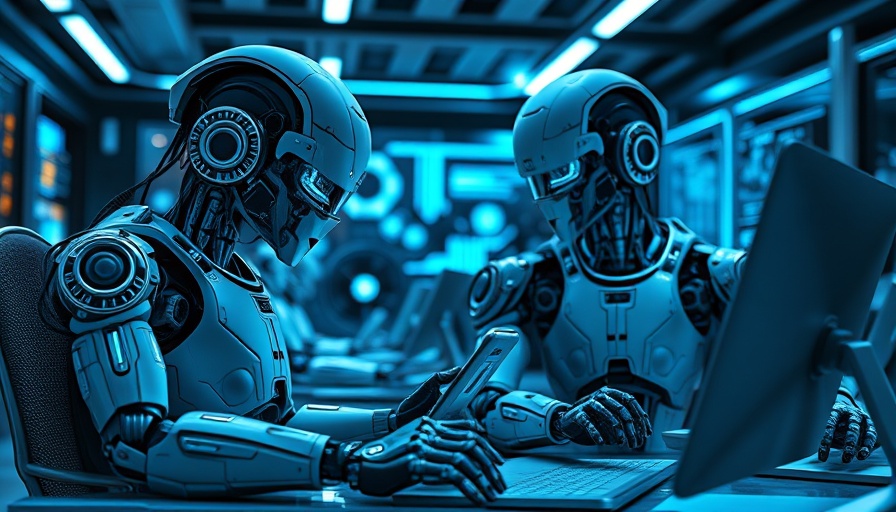
Is Humanity Ready for the Internet of Agents?
With the rapid evolution of artificial intelligence, discussions are swirling around a groundbreaking concept known as the "Internet of Agents." Imagine a world where intelligent machines operate independently, communicating and collaborating without needing human input. This might sound like science fiction, but companies like Cisco are paving the way for this paradigm shift, which could reshape entire industries.
The Dawn of Agent Collaboration
At the heart of this shift lies the concept of autonomous AI agents. These reasoning machines are designed to work together seamlessly, executing complex tasks that were once thought to require human oversight. Vijoy Pandey from Cisco's Outshift group underscores this era as a monumental change in how computing platforms function, indicating that this new wave of agent-centric technology could eclipse all previous platforms.
Introducing DroidSpeak: The Language of Machines
In an exciting twist, Microsoft is taking a page from the playbook of science fiction with its development of "DroidSpeak," a dedicated machine language inspired by the communication methods of droids in Star Wars. This machine-centric language aims to enhance the efficiency and speed of communication between AI agents, proving that machine collaboration might soon operate at lightning pace, far beyond human capabilities.
The Challenges Ahead: Building Bridges for AI
While the vision for the Internet of Agents is promising, hurdles remain. Both Cisco and Microsoft stress the need for industry-wide cooperation to set common protocols and frameworks that would allow these agents to communicate effectively. By ensuring that different models can work together, we can establish a foundation of trust and efficiency critical for this AI-driven ecosystem.
The Future is Now: Are We Ready?
As we stand on this precipice of change, it's essential to consider the implications. If successful, the Internet of Agents could lead us into a new era where human involvement is not central. This raises intriguing questions about our role in a landscape dominated by autonomous machines. Will we become observers in the very world we created, or are we heading toward a partnership built on collaboration? Only time will tell, but the choices we make today will shape our tomorrow.
 Add Row
Add Row  Add
Add 




Write A Comment